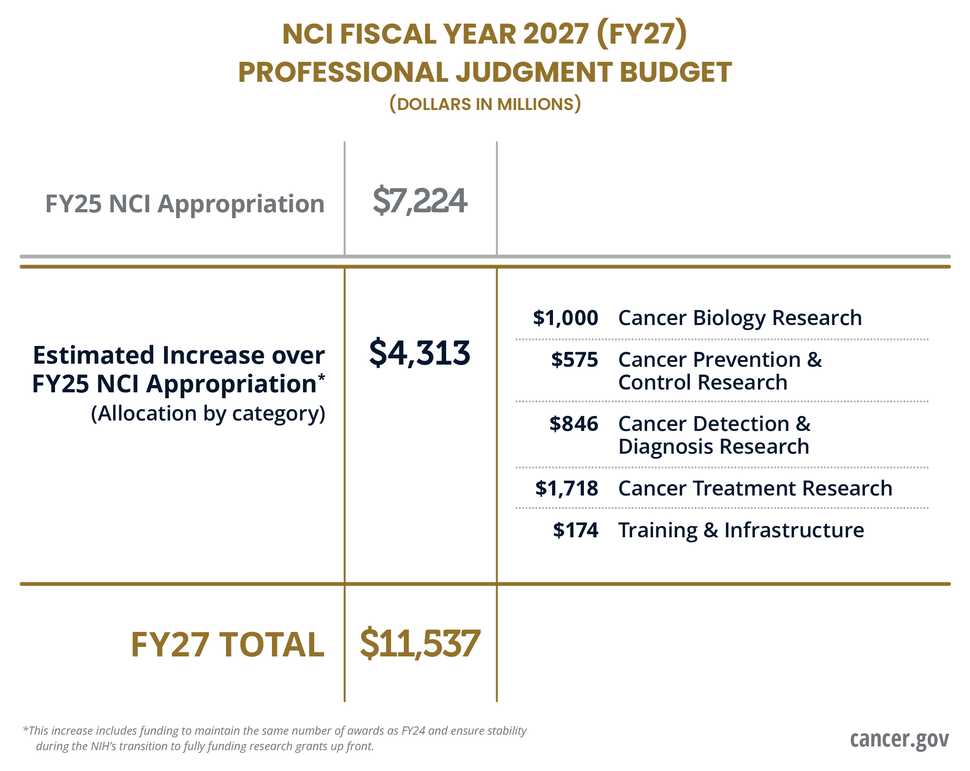The Fiscal Year 2027 (FY27) Professional Judgment Budget presents NCI’s assessment of the optimal funding to support the National Cancer Program and help all people live longer, healthier lives. FY27 presents an opportunity for Congress to sustain robust cancer research for the United States, including new funding to modernize and expand cancer clinical trials, increase investments in cancer research grants, ensure a robust future workforce, and develop new ways to prevent and detect cancer earlier.
NCI is the largest funder of cancer research in the world, providing foundational support that fuels novel discovery, technical innovation, economic growth, and hope. NCI funding is distributed across the United States in both academic and community settings. Meaningful progress against cancer requires sustained funding increases so NCI can act upon existing and emerging opportunities and build on discoveries made from previous investments. Support for these opportunities will increase our understanding of cancer biology and spark the discovery of better ways to prevent, detect, diagnose, and treat cancer.
This budget estimate will enable NCI to fully leverage the scientific opportunities before us to prevent, detect, and treat cancer, while sustaining the cancer research workforce. The return on this investment will be a stronger cancer research enterprise that maximizes research advances to empower progress against cancer for all people.
